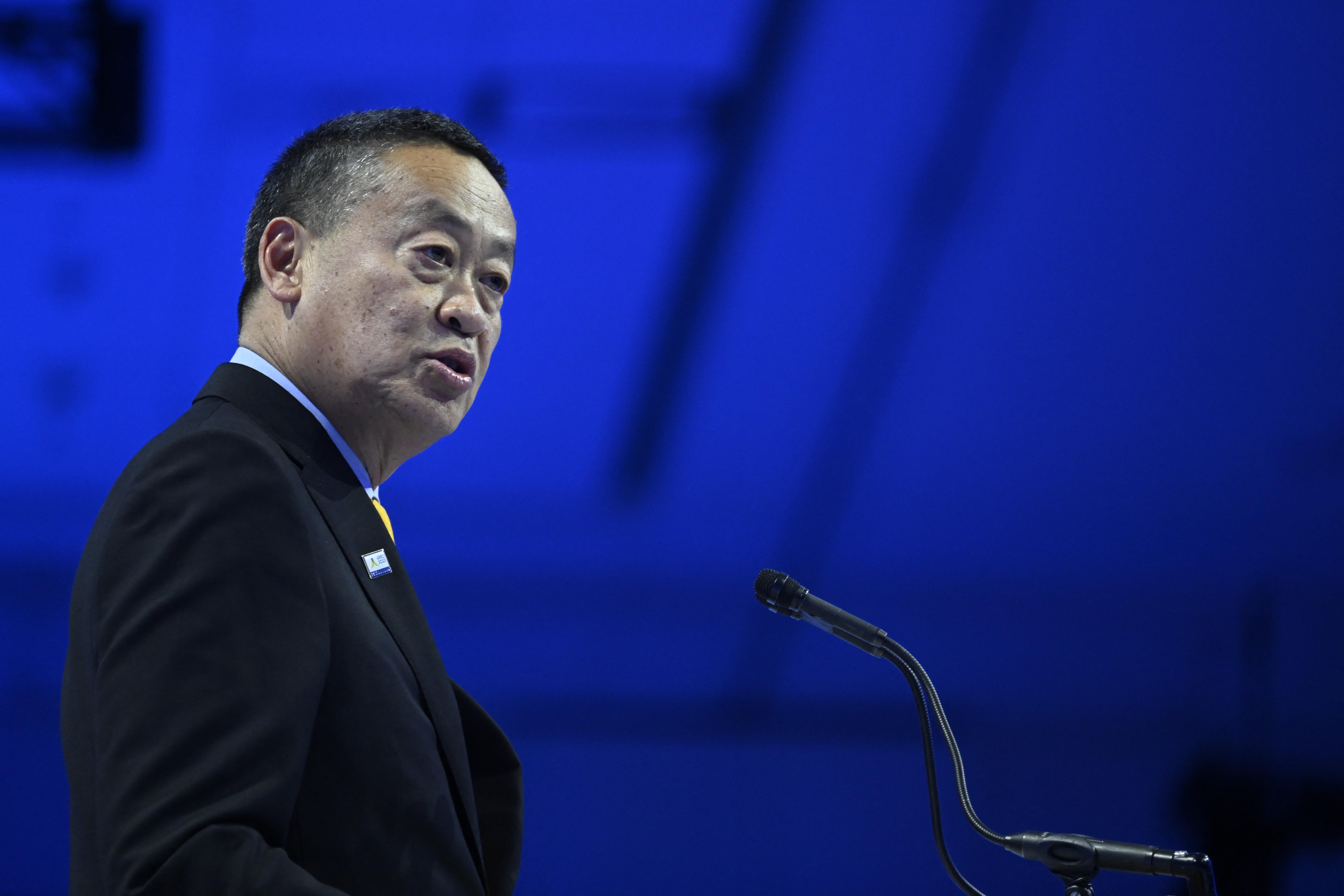 Thai Prime Minister Srettha Thavisin addresses the Asia-Pacific Economic Cooperation (APEC) Leaders' Week in San Francisco, California, on Nov 15, 2023. (PHOTO / AFP)
Thai Prime Minister Srettha Thavisin addresses the Asia-Pacific Economic Cooperation (APEC) Leaders' Week in San Francisco, California, on Nov 15, 2023. (PHOTO / AFP)
BANGKOK - Thai Prime Minister Srettha Thavisin said on Thursday the country's economy was in "crisis", stressing the need to forge ahead with his controversial 500 billion baht ($14.23 billion) digital handouts policy.
Speaking at a forum, Srettha said the economy was not in good shape with fewer foreign arrivals than targeted, and he would be prioritizing attracting foreign investment and addressing household debt.
"There needs to be big economic stimulus," said Srettha, who is also finance minister, adding a plan to tackle debt would be announced on Dec 12.
ALSO READ: Thai official: $14b handout plan an antidote to economic 'crisis'
His comments come days after data from the state-planning agency showed lower-than-expected growth of 1.5 percent in the July-September quarter from a year earlier, the slowest pace this year, on weak exports and government spending.
Bank of Thailand Governor Sethaput Suthiwartnarueput said the country's fiscal and monetary policies required space to ensure the economy remains resilient as it grows
Thailand recorded 23.85 million foreign tourists arriving from Jan 1 to Nov 19, spending 1 trillion baht.
It is targeting 28 million arrivals versus a pre-pandemic record of nearly 40 million foreign tourist arrivals in 2019 who spent 1.91 trillion baht.
Srettha's "digital wallet" policy, which entails handouts of 10,000 baht to 50 million Thais next year to spend in their localities, has come under criticism in recent months by economists and former central bankers over risks of it breaching financial discipline.
ALSO READ: Thailand eyes boosting growth through innovation economy
In recent weeks, government officials have described the economy to be in a crisis, necessitating its signature plan.
Srettha, a real estate tycoon and newcomer to politics, is targeting an average growth of 5 percent annually over the next four years in Southeast Asia's second-largest economy, which grew an average 1.9 percent over the past decade, lagging regional peers.
Speaking at the same forum, Bank of Thailand Governor Sethaput Suthiwartnarueput said the country's fiscal and monetary policies required space to ensure the economy remains resilient as it grows.
READ MORE: Sri Lanka, Thailand to sign trade agreement in Feb next year
"Elements of resiliency include stability, strong balance sheets, fiscal and monetary policy with various options," he said.
In September, the Bank of Thailand (BOT) unexpectedly raised the key interest rate by a quarter point to 2.50 percent, the highest in a decade, saying growth and inflation should pick up next year. It will next review policy on Nov 29.


